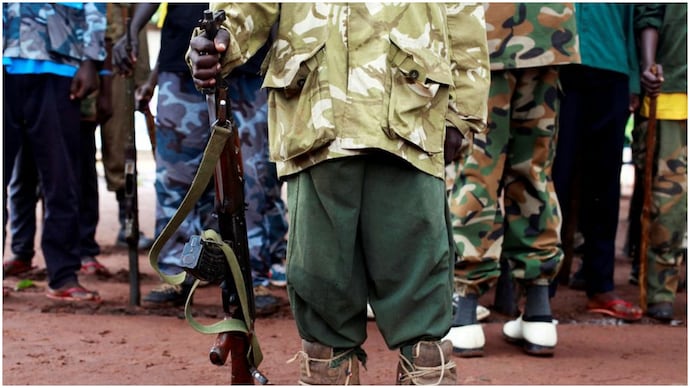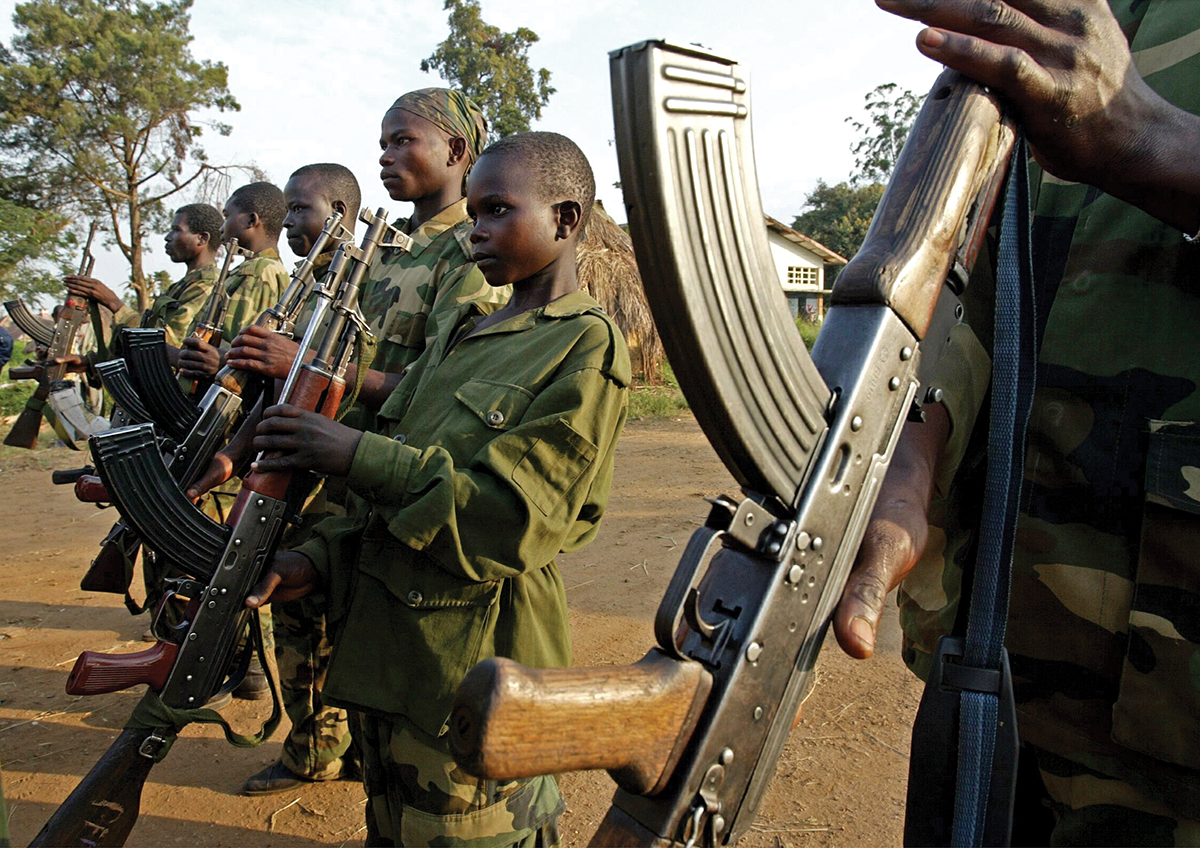How Armed Combat Affects Mental Health of Former Child Soldiers in Africa

Children recruited into armed groups are subjected to physical and psychological trauma. They may witness violence, death, and other horrors. They may be forced to commit acts of violence themselves, leading to post-traumatic stress disorder (PTSD), anxiety, depression, and other problems. The issue of the induction of children into armies can lead to a significant amount of damage, impacting not only their present but leaving them with a void that cannot be filled in a lifetime. In addition to the physical and psychological trauma, child soldiers are also often separated from their families and communities. This leads to social isolation and a sense of loss and abandonment. They may also miss out on education and employment opportunities, which can make it difficult to rebuild their lives after the conflict.
In the wake of Red Hand Day, the international community has pledged its responsibility to protect children from the use of child soldiers. This includes providing support to these children and ensuring that the programs built for their reintegration are run smoothly and efficiently. UNICEF works with government bodies to ensure transparency in funding and that the facilities in place are up and running.
The United Nations defines a child soldier as any person below the age of 18 who is, or who has been, used in any capacity by an armed group. This includes fighters, cooks, porters, spies, or for sexual purposes.
The importance of mental health for child soldiers cannot be overstated. The trauma they experience can have a lasting impact on their physical and emotional well-being. Children are not only subjected to the role of warriors in wars but some underaged females have also been reported to be used as sex slaves. Most of the children found in child militias have been reported to have been threatened, coerced, abducted, or manipulated. Children are threatened with the security of their families or are driven by extreme poverty to maintain the income of their families. The induction of child soldiers is a grave violation of child rights and the International Humanitarian Law.

While some may make it out alive, many of the children face biases as these children are viewed with suspicion or outrightly rejected by communities as they are seen as dangerous people. “There is always a suspicion that [ex-child soldiers] are not good people,” Tulieza remarked. Upon learning that they were once child soldiers, “[organizations] tend to discriminate against them and perceive them as criminals […] who must be kept out of society.” Child soldiers usually end up in internally displaced camps and refugee-seeking arrangements where they usually survive off the ration kits provided by UNICEF. The places where they reside normally do not have the facilities to provide adequate income or income opportunities. Child soldiers who have been deprived of quality education for most of their lives cannot integrate into society and compete with non-combatants. Non-combatants will always be happier individuals, having more access to quality education and stable livelihoods, while combatants that have been exposed to mass murder cannot be expected to compete together. A former child soldier said, “It’s the undervaluing of survivors,” he claimed. “Having survivors compete against non-survivors and viewing them as ‘normal people’.” Child soldiers have been blacklisted by the government and their information has been stored in the government system, making it harder for them to have clearances by police. The prejudice is also observed in travel visa procedures, making it difficult for them to seek asylum and start a new life abroad.
In 2021, it was reported that 6,130 children were recruited by different militias across the world. According to the United Nations, Africa is home to about 40% of the world’s child soldier population. About 30,000 of them are forced to work as slaves, soldiers, and laborers for armed organizations in the Democratic Republic of the Congo exclusively. In the spirit of Red Hand Day, Nigeria and Burkina Faso governments have withdrawn from their traditional practice of screening minors, but other African countries have yet to follow suit. Militant groups such as Boko Haram continue to recruit child soldiers and use them in Cameroon, Niger, and Chad.
Governments should work towards programs where these child soldiers can feel heard. The trauma of their experiences can result in PTSD. To cope with their trauma and learn to function in normal life, former child soldiers need to have access to psychological care. Both individual and group therapy, as well as community-based initiatives, can be used to provide this support. It is also important for governments to ensure that former child soldiers are protected from prejudice. Instances such as special screenings and fingerprint directories can cause immense amounts of trauma and humiliation for the former child soldier. Effective schooling programs are also essential for these child soldiers to have healthy interactions with their peers and develop skills so that they can compete with non-combatant children in their professional lives.
It is also very important for governments to cooperate with child soldiers and set up Microfinancing models for them to have businesses. This way poverty will never be a reason for them to join child militias. It is important to reintegrate former child soldiers into their communities in a way that is considerate of their needs and experiences. Community-based initiatives that foster tolerance and comprehension can do this. The media can also play a role in promoting tolerance and understanding of child soldiers. This includes responsible reporting on the issue, as well as the creation of positive portrayals of former child soldiers. Media can also help to raise awareness of the issue and the challenges faced by former child soldiers. They can use their platforms to raise awareness of the issue and to provide support to former child soldiers. Religious leaders can also help to challenge the stigma associated with child soldiers and to promote understanding of the challenges they face.
The international community must continue to work to end the use of child soldiers and to protect the rights of all children.